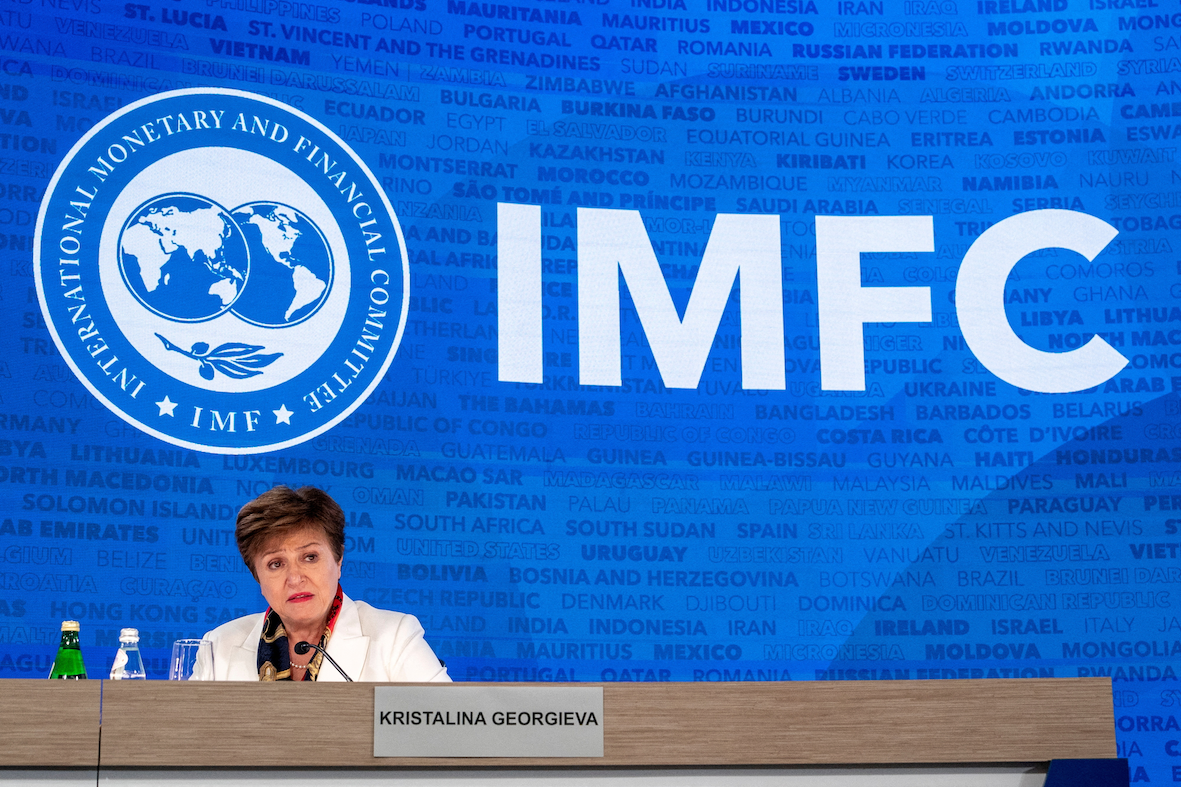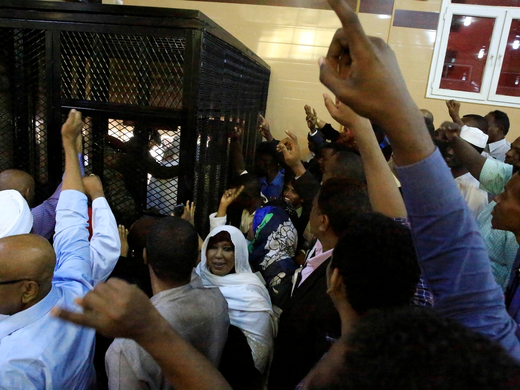The annual spring meetings of the International Monetary Fund (IMF) and the World Bank, which were held in Washington, DC, in April, brought together the movers and shakers of global finance. Typically, the days before finance ministers, central bank governors and global bankers descend on Washington are filled with speeches intended to steer coming policy discussions. This year was no exception.
Prior to the start of the official meetings, the US Treasury’s under secretary for international affairs, Jay Shambaugh, gave a talk at the Peterson Institute for International Economics in which he laid out the US perspective on the state of play in development finance and what needs to be done to improve the system for restructuring sovereign debt.
It was a fine speech. Shambaugh clearly and thoughtfully outlined the challenges facing developing countries and identified the policy initiatives needed to improve their access to financing. But his talk left me with a sense of déjà vu. This is because it was, in some respects, the same speech as one delivered by then finance minister Paul Martin on the margins of the spring meetings, more than two decades ago. That is not a critique of Shambaugh’s presentation, but simply a recognition that the key challenges in development finance have been known for some time.
What is new, and what Shambaugh highlighted, is the player roster for the development finance game. Over the past two decades, new sources of development finance have supplemented the traditional providers of official sector financing — the advanced economy partners.
Although Shambaugh referred to these new players collectively as “emerging markets,” this was diplomacy-speak for the panda in the room — China, which in recent years has become a significant creditor. Unlike other major official creditors, however, China is not a member of the Paris Club forum of official creditors that, for the past 75 years, has rescheduled developing countries’ debt burdens.
The fact that China and other new creditors have declined to join the club wasn’t an issue as long as non-Paris Club claims were small relative to total outstanding debts. Such claims were treated as de minimis and did not pose a serious obstacle to the restructuring of other claims. That is no longer the case, since China can influence Paris Club restructurings, even if it isn’t a member.
Consider the scenario of a highly indebted developing country in financial distress as a result of a sharp decline in the price of its exports. The country is confronted with the politically difficult choice of reducing spending on health and education or servicing its external debts. Historically, in these circumstances, Paris Club members would agree to reschedule their claims, relieving pressure on the country’s finances while preserving the net present value of their claims. (In cases of severe over-indebtedness, club members would reduce the value of their claims, or take a “haircut” on their claims.)
With all members of the club agreeing to comparable terms, such restructurings were generally completed in a reasonably timely fashion. However, because China is now a major creditor, Paris Club members may be understandably reluctant to restructure their claims, since doing so would free up resources that could be allocated to servicing Chinese claims. The resulting delay in restructuring can be detrimental to all creditors, as future debt-servicing capacity is impaired, and may be potentially catastrophic for the citizens of the developing country.
To address this problem, Shambaugh argued that all official creditors — including those outside the Paris Club — should adhere to the basic tenets of the club. Most importantly, they shouldn’t reduce their exposures in the event that a developing country borrower encounters debt-servicing difficulties and seeks relief from its official creditors.
He has a point. After all, why should the claims of Paris Club members rank below those of China and the other new players? His message, delivered sotto voce, was clear: if China wants its voice heard in designing the architecture of international governance, it should play by the rules of the game.
The emergence of China as a major creditor isn’t the only change in the development finance game to upset Paris Club protocols. Ever since the Asian financial crisis a quarter century ago, it has been clear that private creditors are now the key driver of financing flows. And although it is possible to literally get all official creditors in a room to negotiate a Paris Club rescheduling, that is not possible with respect to private creditors.
Private creditors are not only more numerous but also more diverse and disparate, with different time horizons, risk tolerances and seniority in the debt-servicing pecking order. This increase in the complexity of the creditor community amplifies the challenges of resolving debt distress, resulting in debt restructurings that are frequently “too little, too late.”
It is noteworthy, therefore, that in his spring meetings speech, Shambaugh also identified several initiatives that could facilitate the timely restructuring of private claims in cases of severe sovereign debt distress. It was his discussion of these measures that elicited my sense of déjà vu, although this is not to say that progress hasn’t been made over the past 25 years.
In contrast to the situation before the Asian financial crisis, for example, most new international sovereign bond issues now include collective action clauses that help resolve creditor coordination problems. And as Shambaugh noted, successive reforms to the IMF’s lending into arrears policy have helped to balance negotiating power by giving distressed sovereign borrowers access to Fund lending. He also acknowledged the potential role that loan guarantees and other credit enhancements can play in expanding developing countries’ access to financing, an initiative highlighted in past CIGI work.
Yet, although much has been done, one key policy tweak on Shambaugh’s list remains unfinished business — standstill clauses. These clauses, which figured prominently in that speech Martin gave more than two decades ago, would temporarily freeze interest and amortization payments when triggered in cases of severe debt-servicing difficulties.
That pause would allow the sovereign borrower to strengthen policy frameworks to enhance long-term debt-servicing capacity, to the benefit of all creditors, private and public alike. In a sense, the standstill extends the traditional Paris Club practice of holding credit exposures in periods of financial stress to all creditors. Moreover, standstill clauses would help to align incentives among private creditors, possibly resulting in more timely and more sustainable sovereign debt restructurings.
To be sure, there are difficult issues to resolve with respect to standstill clauses, including, most significantly, defining the triggers that would activate the suspension of debt-service payments. But these challenges are not insurmountable, and rather than undermining the sanctity of private contracts, as some market fundamentalists assert, standstill provisions are key elements of the legal frameworks of effective bankruptcy regimes around the globe. The simple truth is that these provisions help promote the efficient allocation of capital and support economic growth. That being said, Shambaugh and his US Treasury colleagues have their work cut out for them to get standstill clauses incorporated in private debt contracts.
Let’s hope they are not identified as “unfinished business” on the development finance agenda in some future pre-spring meeting speech.



